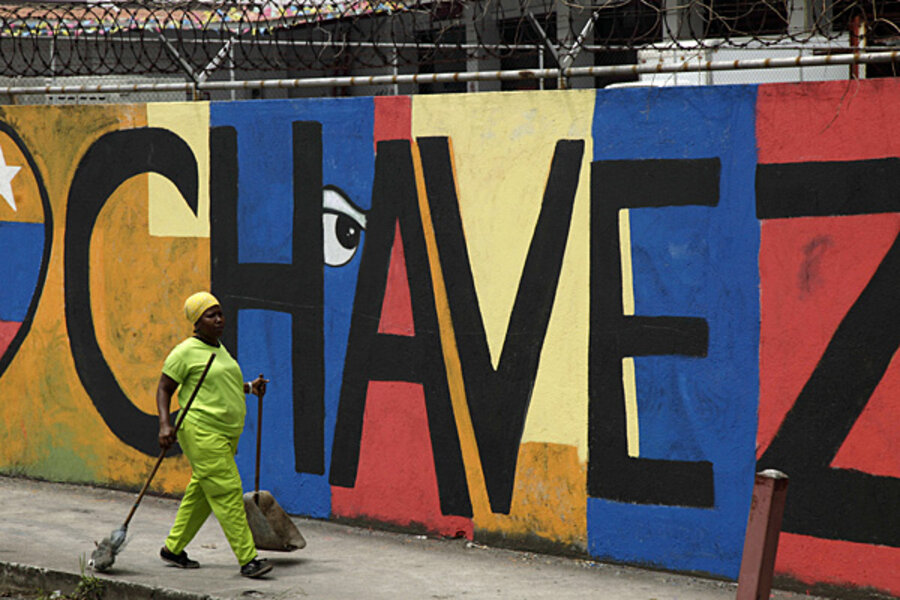After Hugo Chávez, what's next for Venezuelan oil?
Loading...
Hugo Chávez's passing offers new promise for developing the world's largest oil reserves, but most analysts expect that change will come slowly, if at all.
Production at the state-owned oil company Petróleos de Venezuela SA (PDVSA) dropped by a quarter under Mr. Chávez, and some speculate the Venezuelan leader's passing will usher in an era of stability for the country's national oil company.
"The oil industry has been waiting patiently for Chavez to die with the hope that whoever came next would be more interested in building value rather than destroying it," notes Forbes.
The potential value is enormous. Venezuela's Orinoco Belt holds the world's second largest reserve of tar sands (also known as oil sands) after Canada. Adding in its conventional oil, Venezuela has 296.5 billion barrels of oil reserves, the largest in the world, according to BP's 2012 Statistical Review of World Energy. No. 2 Saudi Arabia has 265.4 billion barrels in reserve.
Venezuela plans eventually to produce an additional 2 million barrels per day courtesy of more than $80 billion in investments.
But mismanagement plagued PDVSA during Chávez's reign, stifling production. And nationalization of the oil industry and other political moves scared off many foreign investors. Oil giants like Exxon Mobil Corp. and ConocoPhillips left the country. Others won for contracts but were hesitant to put in the large investments neces, but Chávez's passing may once again catch the attention of the oil supermajors.
“[PDVSA] really is disrespected today because of corruption, cronyism, incompetence and it’s just doing a terrible job for the people of Venezuela,” John Hofmeister, former president of Royal Dutch Shell's US unit, told Bloomberg Wednesday. “They’ve got a long way to come back. Let’s hope they can come back, because otherwise it’s gonna get worse before it gets better.”
Despite being the fourth-largest oil exporter to the United States, Venezuela's role in the global oil market has diminished over the years. The boom in tight oil production from shale may soften the impact of any price uncertainty associated with the end of the Chávez era.
"Venezuela is a weak OPEC hawk, as it has no sufficient production to influence prices," Gustavo Coronel, a founding member of the board of state-oil firm PDVSA, told CNBC Tuesday. "Venezuela is no longer a factor that can really upset the markets as was the case 20 years ago."








